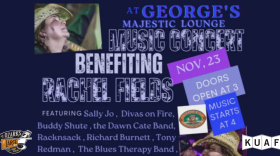Everyone needs to be able to see a doctor when they’re sick or injured.
According to a study from Heartland Forward, almost a quarter of counties in Arkansas, Kansas, Kentucky, Missouri, Oklahoma, and Tennessee had a population-to-primary care provider ratio that was more than double the U.S. average. That means people in those states may have to travel long distances just to receive necessary treatment.
What’s more, the Centers for Medicare & Medicaid Services estimate that 10% of mothers in many parts of Arkansas drive more than 100 miles for prenatal and postnatal care.
Angie Cooper, executive vice president at Heartland Forward, says her organization is working to fix that disparity through technology.
“We know that telehealth can bridge that gap, offering patients the ability to consult with healthcare providers without needing to travel long distances," Cooper said. "By empowering our communities and our librarians with the knowledge and resources to facilitate telehealth training, we are ensuring more Arkansans can receive the care they need regardless of where they live."
Cooper says the organization plans to increase telehealth access by equipping librarians to teach their patrons how to prepare for a telehealth visit using the Telehealth DigitalLearn module. An in-person and virtual training session followed yesterday’s press conference announcing the project.
This initiative is part of a larger project called "Connecting the Heartland," a joint effort between Heartland Forward and the James M. Cox Foundation to expand access to healthcare and high-speed internet. The partnership also includes the Public Library Association. Fayetteville Public Library Director David Johnson says the library is a perfect place to be a resource for those navigating telehealth for the first time.
“I think one of the things that we really emphasize is that, for many libraries, 'public' is our middle name," Johnson said. "That means open to everyone, a valued, trusted institution that everybody can come to and utilize for free, regardless of their station in life. When we talk about telehealth in communities, oftentimes it's with the vulnerable community—those who need access to things like computers, broadband, private rooms where they can have consultations, and librarians who can guide them to additional resources and materials. Public libraries are a valued institution.”
Telehealth can be intimidating. Aging residents, especially, might need extra assistance while using digital programs and services that are new to them. Senior Manager of Connecting the Heartland, Mary Larkin Furlow, says the Telehealth DigitalLearn module acts as a tool that librarians will explain and enable people to use.
“Allowing librarians to help people feel more comfortable with the digital skills and the overall experience of telehealth will be vital to ensuring that communities feel comfortable using this new technology,” Furlow said.
"It starts by providing an overview of what telehealth is and why it’s important. It shows how it can connect patients to healthcare providers remotely, through video and phone calls, while also explaining when it’s necessary to meet with a provider in person. The module also covers how to connect with a provider using the patient portal and how to prepare for a telehealth appointment, which we’ve found is important so people feel at ease when they start talking to their doctor and can make the most of their time with the provider."
Ozarks at Large transcripts are created on a deadline. This text may not be in its final form and may be updated or revised in the future. The authoritative record of KUAF programming is the audio record.








